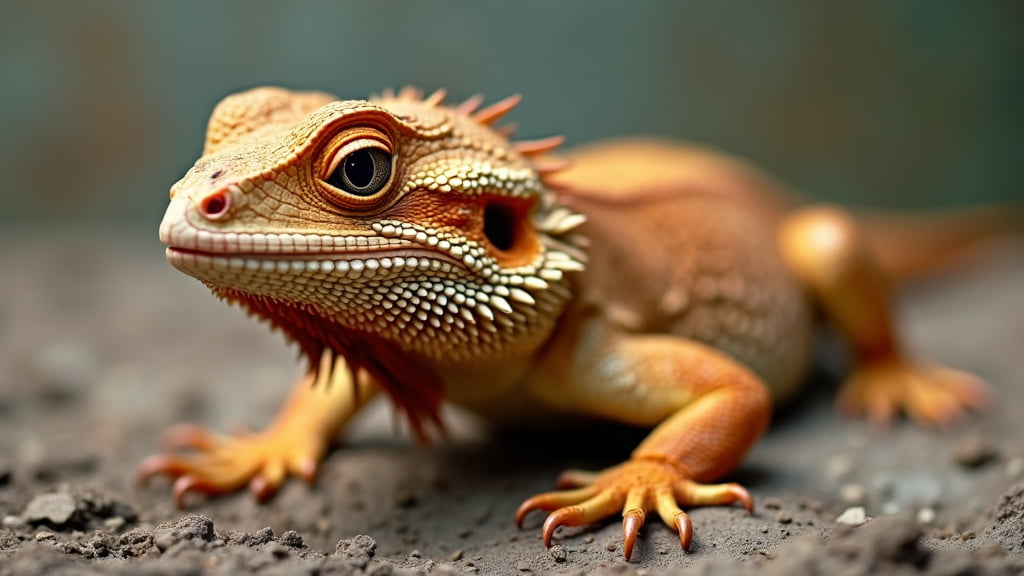Greetings, fellow bearded dragon fans!
If you’re like me, you’re always looking for new foods to add some variety to your dragon’s diet. But how do you know which plants are safe and nutritious for your scaly friend? Today, we’re going to address the question: Can bearded dragons eat clover?
I’ve lived with my delightful bearded dragons for years and become passionate about their dietary needs. I’ve done the research to find out what’s best for these curious critters. So, let’s explore whether clover is a treat or a trick for our little pals!
Understanding the Bearded Dragon Diet
Bearded dragons are omnivores, which means they need a mix of vegetables, fruits, and insects to stay healthy. A balanced diet keeps them happy and thriving. Usually, their diet includes leafy greens (like collard and dandelion greens), colourful veggies (like bell peppers and carrots), and protein-packed insects (like crickets and dubia roaches).
Making sure you provide safe greens is super important. I remember the first time I researched a new plant for my beardies – lots of reading, being careful, and finally the joy of seeing my pets enjoy their new meal! It’s a fun but cautious journey.
What is Clover?
Clover is a common plant from the genus Trifolium. These little green plants often grow in lawns and gardens. Clover leaves are small, come in sets of three, and sometimes you might even find a lucky four-leaf clover!
Clover isn’t just a lucky charm; it’s also full of vitamins, minerals, and fibre. But let’s find out if it’s good for our bearded dragons.
Is Clover Safe for Bearded Dragons?
Expert Opinions
What do the experts say? Herpetologists and exotic pet experts suggest being cautious with new foods. So, can bearded dragons eat clover? While clover isn’t poisonous, it’s not one of the top recommended foods for bearded dragons. Always talk to your vet before making significant changes to your pet’s diet.
Scientific Considerations
From a scientific view, clover has both good and bad points. Let’s dig in and see what we find:
- Oxalates: Clover has oxalates, which can bind to calcium and make it hard for dragons to absorb. Bearded dragons need a lot of calcium for strong bones and good health.
- Calcium Content: Clover has some calcium, but oxalates might cancel out the benefits.
One day, I tried giving my beardies a little clover. They seemed curious about the new food but didn’t love it. There were no bad reactions, but clover didn’t become their favourite.
How to Introduce Clover into Your Bearded Dragon’s Diet
Starting Slow
When introducing any new food, go slow. Start with a tiny amount and watch your dragon for any bad reactions over the next 24-48 hours. Look for changes in appetite, energy, and droppings.
Balancing the Diet
If everything seems fine, mix clover with other greens and vegetables to create a balanced mix. Think of it as a salad bar – with clover just one option among many.
Quantity and Frequency
When feeding clover, moderation is key. Give clover in small amounts and not every day. It can be an occasional treat rather than a regular part of the diet.
Recognising Safe and Unsafe Plants
List of Safe Greens and Vegetables
- Collard Greens
- Mustard Greens
- Dandelion Greens
- Butternut Squash
- Bell Peppers
List of Unsafe Plants
- Rhubarb
- Ivy
- Oak
- Buttercup
- Wild Mushrooms
What to Watch For: Health Concerns
Signs of Digestive Issues
Watch for signs of digestive problems like diarrhoea, constipation, lethargy, or lack of appetite. If your dragon shows any of these symptoms after eating clover or any new food, stop feeding it right away and consult your vet.
Importance of Veterinary Advice
Remember: always talk to your vet when introducing new foods to your dragon’s diet. Vets can give personalised advice for your dragon’s needs and health. We all want our beardies to stay happy and healthy while enjoying their treats safely!
Conclusion
So, can bearded dragons eat clover? While clover isn’t harmful in small amounts, it’s important to introduce it slowly and in moderation. It’s not as nutritious as collard or dandelion greens, but it can be an occasional addition to your dragon’s diet.
Always do thorough research and consult your vet to ensure the best care for your beloved pet. A bearded dragon’s health is as precious as finding a lucky four-leaf clover!
For those who love exploring new foods for your bearded dragons, happy feeding and may your dragons always bring you joy.
Additional Resources
Here at Dug’s Bugs, we care about your exotic pets. Check out our other blog posts and resources for more tips on reptile care, fun pet stories, and the latest in pet health.
For detailed information on the best diet for bearded dragons, visit our detailed blog post on the best diet for bearded dragons.
Call to Action
What’s your experience with feeding clover or other new foods to your scaly friends? Share your stories in the comments below – we love hearing from our readers. Follow us on social media or subscribe to our blog for more fun discussions and valuable tips on exotic pet care.
Happy feeding everyone!

